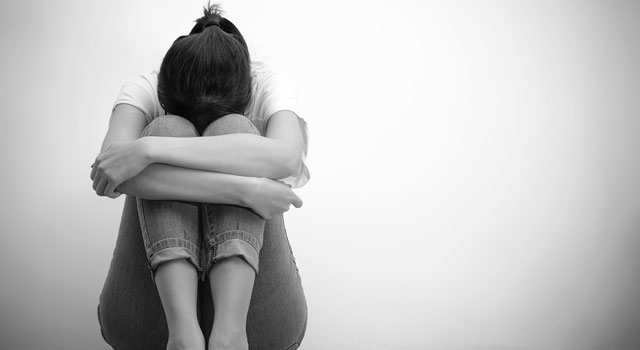Suffering from mental illness can make staying sober seem impossible. Many people with mood disorders use drug or alcohol to self-medicate, so when the substance is gone, it may be hard to cope with even everyday life, let alone stress or major life events. Fortunately, dual diagnosis is not the end of the world nor is it uncommon. In fact, roughly 50% of those with major mood disorders abuse drugs or alcohol and more than 50% of those with substance abuse disorder also suffer from underlying mental illness. If you have a dual diagnosis, you are not alone. Mood disorders and substance abuse disorders are both treatable and can be maintained so that a person can live a happy and productive life.
What Exactly Is Dual Diagnosis?
Dual Diagnosis is the term given when a person has a major mood disorder (like depression, bipolar, or schizophrenia) and also has a substance abuse disorder requiring abstinence. Unlike addiction alone, dual diagnosis requires a comprehensive treatment plan for both disorders.The mood disorder requires a totally separate treatment plan while addiction requires another.
Rates of addiction are much higher among those who suffer from mental illness, which is why dual diagnosis is not uncommon. For instance, a person with depression tends to look for ways to make them feel better, which unfortunately usually leads to drugs or alcohol. This is called self-medication because instead of seeking professional help, the afflicted person will take it into their own hands. Self-medication is the leading cause of addiction.
While addiction typically requires abstinence and some form of a support network, mood disorders often require medication and/or therapy. Even if you have not had success with medication in the past, trying again in recovery can make a massive difference. With disorders such as bipolar or schizophrenia, even just the occasional drink can trigger an episode. Full abstinence from drugs or alcohol while on medication is the most effective way to stay happy and healthy.
Do You Have A Mood Disorder?
This question is best answered by a doctor, but the there are some common symptoms which may explain your reasons for using drugs or alcohol to excess. Unfortunately, it can be hard to tell right away if you have a mood disorder due to the fact that many of the symptoms of addiction can resemble depression or bipolar disorder. Sometimes it will take a period of abstinence before a mental illness can be accurately diagnosed. Mood disorders can affect any person at any age.
Bipolar Disorder
Bipolar disorder is most commonly characterized by drastic changes in mood, often resulting in a stimulating high called mania. Sometimes mania is followed by a low or depression. Some symptoms of mania include:
- Increased energy
- Aggressive or violent behavior
- Decreased need for sleep
- Racing speech and thoughts
- Reckless behavior like spending sprees and sexual promiscuity
- Impulsive decisions
- Grandiose plans and feelings of self-importance
- Irritability
- In severe cases: delusions and/or hallucination
Depression
Depression is a caused by a chemical imbalance in the brain which affects the areas associated with reward. The symptoms can be debilitating and can lead a person to drug abuse or even suicide or self-injury. Depression can be its own disorder or can be in conjunction with bipolar disorder, called manic depression. Depression can make simple tasks seem daunting or even make life seem not worth living. Symptoms of depression include:
- Long periods of sadness
- Unexplained crying
- Exhaustion
- Poor concentration
- Thoughts of death or suicidal ideation
- Unexplained aches or pains
- Isolation
- Hard to find joy in favorite activities
- Feelings of pessimism or general indifference
- Feelings of worthlessness or hopelessness
Schizophrenia
Schizophrenia is a severe mental illness that can lead to destructive behavior. It is often characterized by delusions, hallucinations, and/or thoughts of paranoia. Often those with schizophrenia find it hard to accept their illness due to intense paranoia. Schizophrenia is more common in males and typically surfaces in late teen years or early adulthood. Luckily, schizophrenia can be treated and significantly improves with addiction recovery. Some symptoms of schizophrenia include:
- Delusions (bizarre thoughts or beliefs that have no basis)
- Memories that are not real
- Confusion
- Slurred speech
- Trouble concentrating
- Hallucinations (visuals or voice that are not real)
- Emotionless
- Impaired cognitive abilities
What To Do?
Luckily, mood disorders can be treated with a proper treatment plan. Treatment for dual diagnosis is included in many addiction treatment centers and often involves abstinence, group therapy, one-on-one therapy, and medication. Bipolar disorder, depression, and even schizophrenia can be treated with medications. These medications are far more effective in people who abstain from drugs or alcohol. Rewarding hobbies, meditation, and yoga have also been proven to help treat depression or bipolar disorder. Dual diagnosis does not mean you are doomed and a meaningful life is still possible with the right treatment.
Seeking Treatment for Alcoholism and Addiction
If you or a loved one has a problem with alcoholism or addiction and want to experience recovery in a thriving community with lots of people just like you, then call the professionals at Stout Street today at 303-321-2533. Our trained staff is standing by to take your call and help you in any way we can. We know how difficult of a decision this can be and we know what it takes to ensure you find your own personal path in recovery. You no longer have to do it alone, so give us a call today and find the happy and sober life you’ve always dreamed of.

